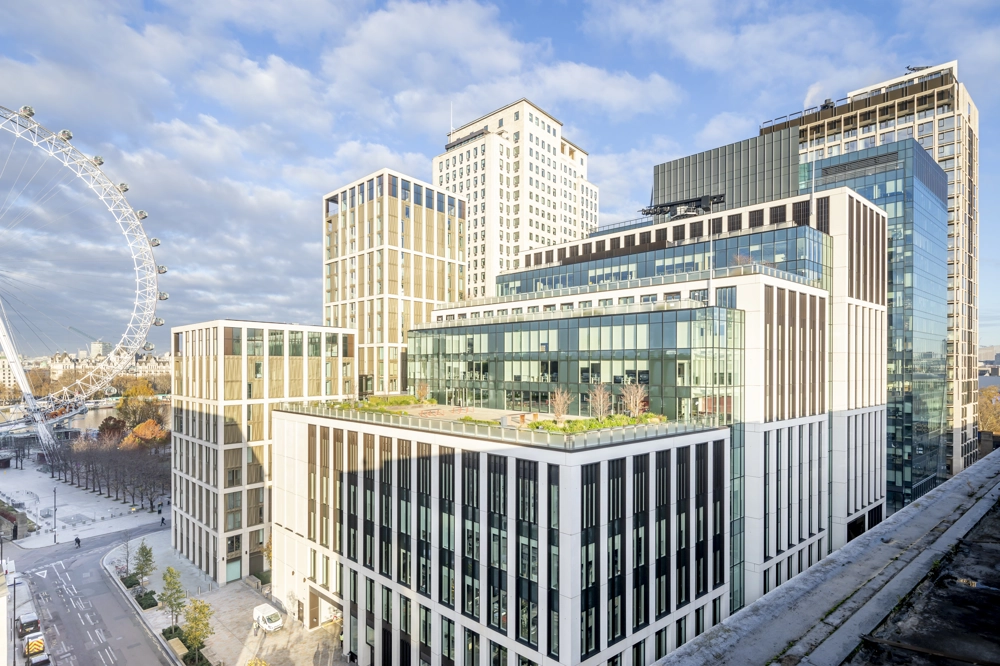Legal & General: Inflation bites as 95% of working UK households experienced a real terms pay cut over the last year
According to Legal & General’s Rebuilding Britain Index, announced today, 95% of working UK households have experienced a real terms pay cut over the last 12-months. The report finds that the cost of living crisis has hit the poorest households hardest, deepening existing economic inequalities. L&G CEO Sir Nigel Wilson calls for renewed focus on levelling up and a more targeted approach from Government on how public and private financing can be used to achieve more ambitious, sustainable, and longer-term change where it is needed most.
27 Mar 2023
Full press releaseFull report

- 95% of UK working households have taken a real terms pay cut over the previous 12-months. Lower income households are more severely affected, as 99% of households with income of under £20,000 have taken a real terms pay cut
- This leaves nearly one in two households (47%) concerned about being able to keep up with rent and mortgage payments over the next 12-months
- Over half (54%) of UK households have reduced day-to-day spending in response – a further 51% expect it to decrease still further over the next year
- The lowest income households in the UK are most likely to feel that their quality of life is declining (29%) vs only 13% in the highest income households
- There was a consensus amongst respondents that long-term solutions, such as investment in energy efficient homes and offices (59%) and the creation of higher wage employment (52%) are the most attractive solutions to tackling the cost of living crisis
8th Instalment of the Legal & General Rebuilding Britain Index
The Legal & General RBI was established to measure the UK’s progress in levelling up on a quarterly basis, surveying 20,000 people and tracking social and economic progress across 52 measures, including Health and Social Care, Education, Housing, Jobs & Economic Prosperity, Environment, Energy, Transport and Digital.
Comparing the latest RBI data against the prior year shows that the prolonged, but slight, improvement in the Jobs & Economic Prosperity score has come to an end – with no movement over the last quarter at a UK level.
However, the gap between London are the poorest performing parts of the UK has widened. The Jobs & Economic Prosperity score for London has increased over the latest wave (73/100), while the North-East of England (58/100), North-West of England (61/100) and Yorkshire & Humber (61/100) failed to see any improvements over the same period.
Sir Nigel Wilson, Group CEO of Legal & General: “Our research across 20,000 UK households exposes the stark choices that inflation is forcing on many people in Britain. Levels of employment continue to improve but real wages are lagging behind. It is particularly concerning to see that not only are the key RBI measures such as access to housing and healthcare stalling or falling nationwide, but that the cost of living pressures are widening the inequalities that the Levelling Up agenda is aiming to address.Recommitment from Government on the policy itself is welcome news, as are the new and additional Budget devolution settlements. But this needs to be doubled down with ambition and collaboration to drive more private sector economic investment and modernise planning to produce a meaningful and lasting impact. Smaller individual projects, sprinkled across the UK, that are not joined up, are unlikely to be effective or efficient as they don’t address the underlying causes of regional and local inequalities. It is our belief that a more joined-up approach, through public-private sector partnerships will result in the type of impact that is really needed in the places that need it the most.”
Inflation is widening the gap between the UK’s wealthiest and poorest households
When surveyed on how household income has changed over the previous 12-months, only 5% state that it has risen in line with or above inflation. A further 19% state it has increased below inflation, while 21% have experienced a decline in income over this period. This is hitting lower income communities the hardest, and widening the gap between the UK’s wealthiest and poorest households. Only 1% of those with under £20,000 household income have experienced an increase at or above inflation, while a third (33%) have experienced a pay cut.
Fig 1: % of real terms pay changes per household income
|
NET |
Under £20,000 | £20,000-£39,999 | £40,000-£59,999 | £60,000-£79,999 | £80,000-£99,999 | £100,000+ | |
|
Real term decrease |
95% |
99% | 97% | 95% | 88% | 91% | 83% |
|
Real term increase |
5% |
1% | 3% | 5% | 12% | 9% | 17% |
Household spend will continue to be hit
As a result of cost of living pressures, over half of households have cut their spending (54%) over the previous 12-months, with consumer goods, tourism and leisure spend hardest hit.
Fig 2: % of households that reduced spend over the last year by category
|
Type of goods / services |
% decreased spend in the year |
|
Consumer Goods (e.g. clothes, shopping) |
54 |
|
Leisure Activity (e.g. cinema visits) |
50 |
|
Tourism Activity (e.g. family holidays) |
49 |
|
Birthdays & Christmas |
43 |
|
Memberships (e.g. gym memberships) |
41 |
|
Entertainment (e.g. Netflix subscriptions) |
36 |
However, with 66% of households agreeing that the cost of living crisis is far from over, for them personally, the research suggests that we should expect continued depressed levels of household discretionary spend throughout the course of 2023. Indeed, 51% of households expect their discretionary spending to decline over the coming year – with only 8% expecting it to increase.
A foundational approach to long term structural issues
As a result of these findings the research shows that the inequalities in quality of life, the core measure that the levelling-up agenda is seeking to address, are actually continuing to widen. While higher income households are strong in their beliefs that quality of life is improving, the same is not true of the UK’s poorest households. Only 25% of those with a household income of under £20,000 feel that quality of life is improving, compared to 29% who feel it is declining.
This has led L&G to call for greater private sector investment and a more ambitious and foundational approach, using private and public funding more effectively to address the underlying fault lines that are the root cause of these long-term disparities across the UK. The solutions will not be visible in a single year – a multi-year approach is required.
John Godfrey, Director of Levelling-Up at Legal & General: “Legal & General has already invested billions and is continuing to invest in towns and cities across the UK, including Newcastle, Sunderland, Leeds, Sheffield, Manchester, Birmingham Oxford and Cardiff. This is part of our approach to inclusive capitalism – which takes a place-based approach to where and how we invest. These investments are having a demonstrable and positive impact on the communities in which we invest. Unlocking funding—be it private or public money - and working with local and national partners and organisations is crucial to strategically and sustainably address regional barriers to levelling-up.”
Further information




